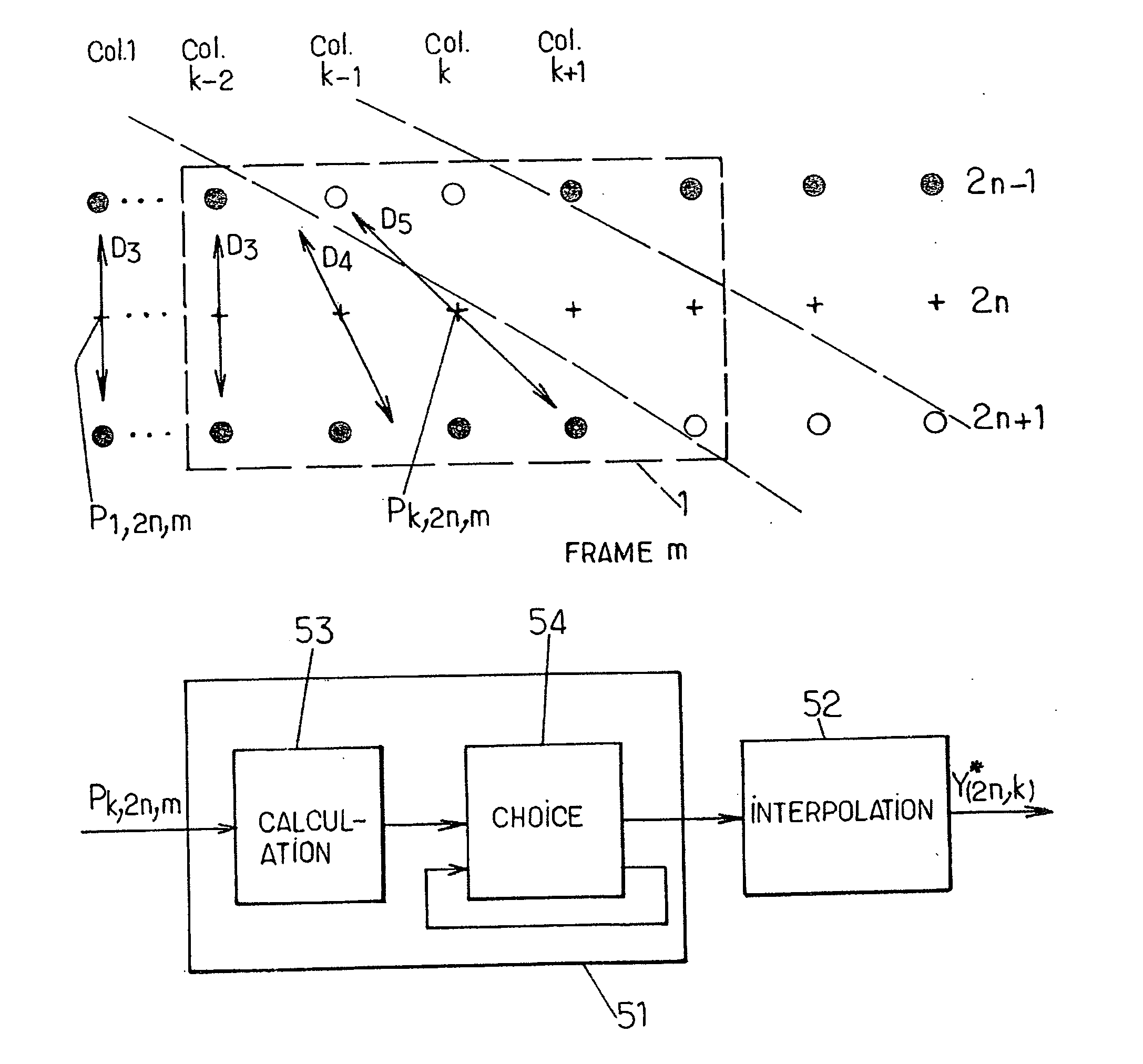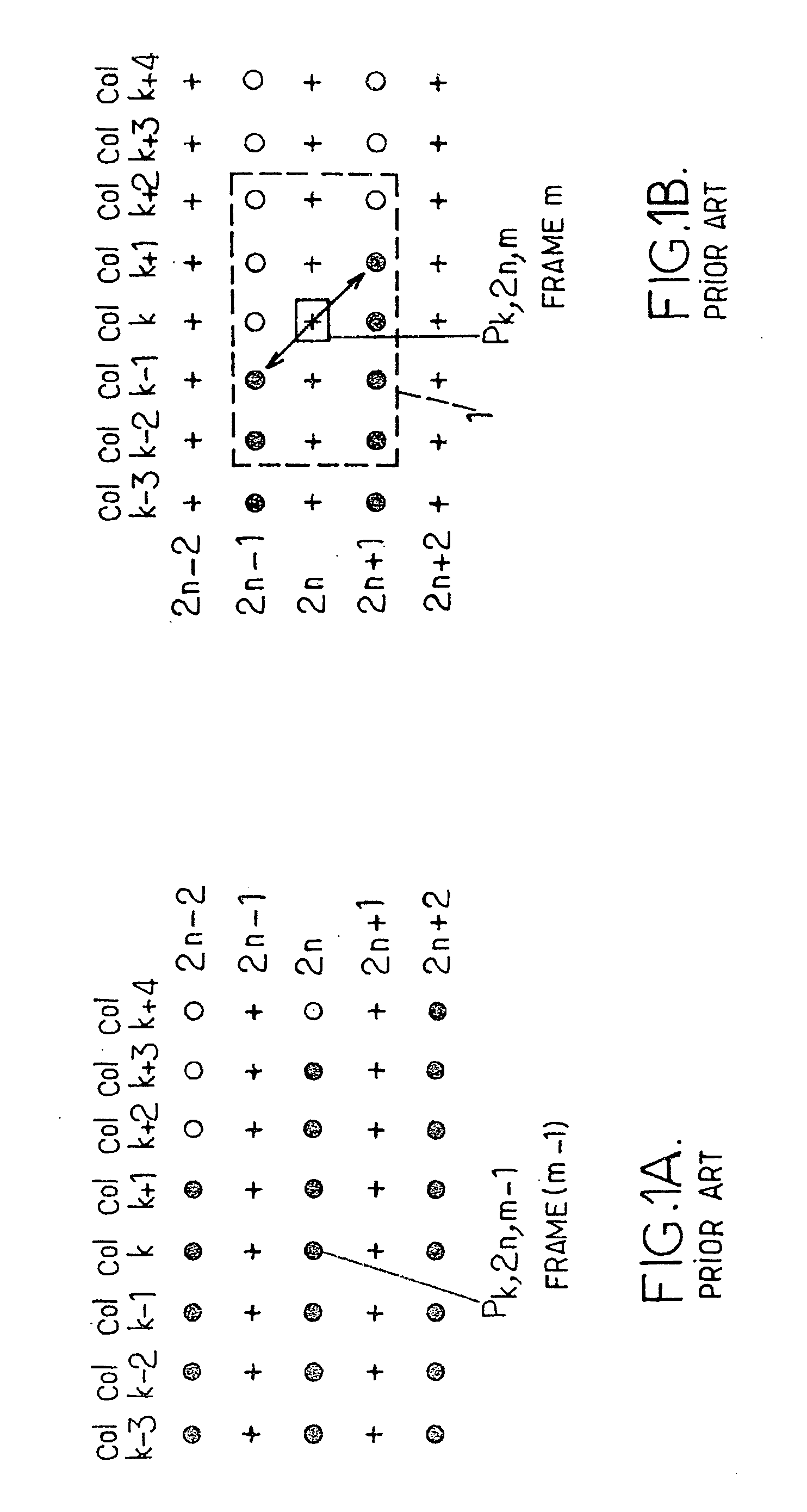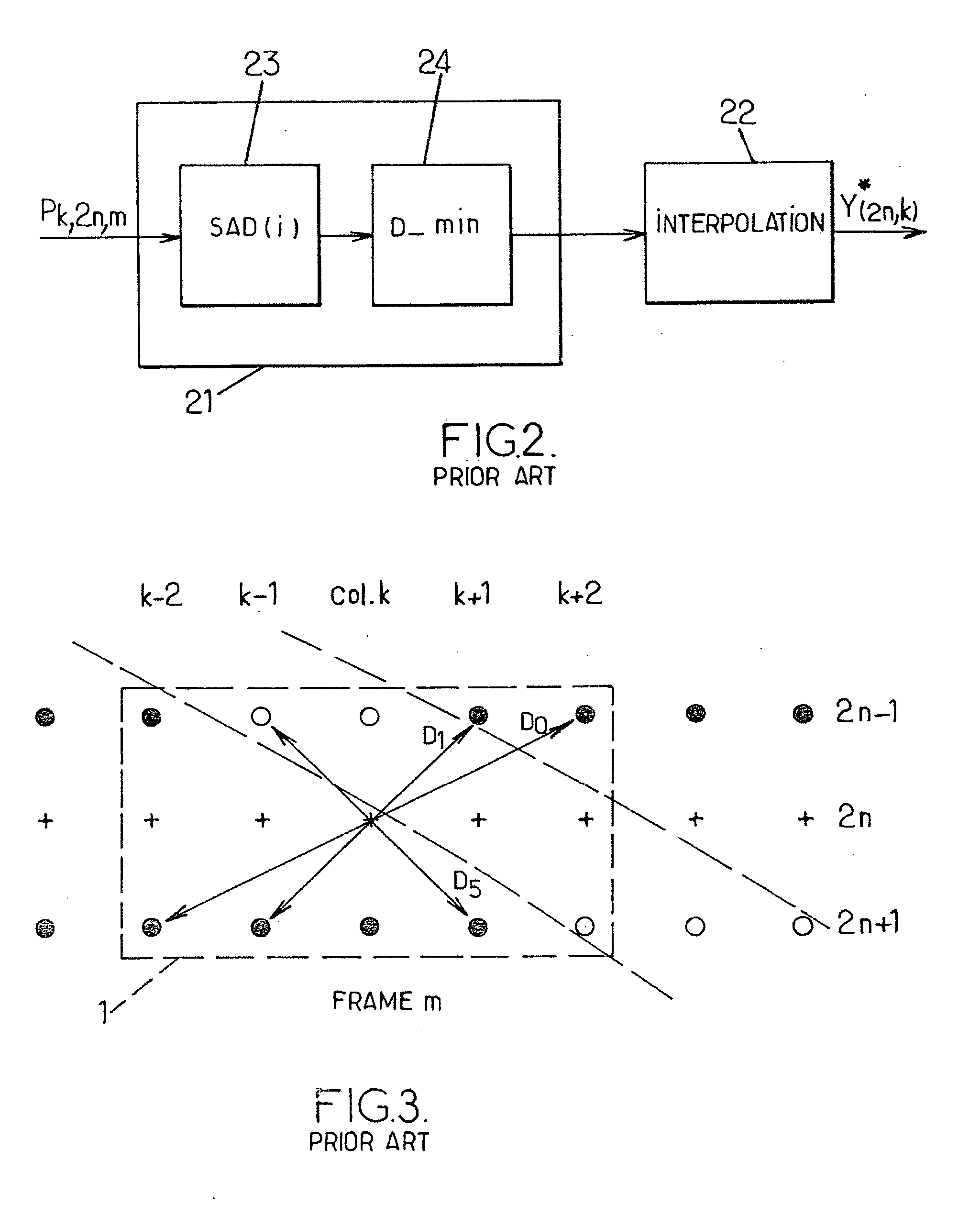Deinterlacing of a sequence of moving images
a moving image and sequence technology, applied in the field of video display conversion, can solve the problems of reducing the quality of images, not being able to reconstruct images, and not being able to achieve the effect of stair casings at the level, so as to facilitate decision-making and achieve the effect of relatively easy
- Summary
- Abstract
- Description
- Claims
- Application Information
AI Technical Summary
Benefits of technology
Problems solved by technology
Method used
Image
Examples
Embodiment Construction
[0050] It should be understood that these embodiments are only examples of the many advantageous uses of the innovative teachings herein. In general, statements made in the specification of the present application do not necessarily limit any of the various claimed inventions. Moreover, some statements may apply to some inventive features but not to others. In general, unless otherwise indicated, singular elements may be in the plural and vice versa with no loss of generality.
[0051] We refer first of all to FIG. 4, in which is represented a frame portion, associated with an image representing an object of relatively small thickness. The thickness of the object, whose contours are represented by dashed lines, is of course relative to the number of pixels.
[0052] For the sake of simplification, the pixels represented in this frame can take only two values, corresponding for example to the color black and to the color white. In practice, however, intermediate values are possible.
[005...
PUM
 Login to View More
Login to View More Abstract
Description
Claims
Application Information
 Login to View More
Login to View More - R&D
- Intellectual Property
- Life Sciences
- Materials
- Tech Scout
- Unparalleled Data Quality
- Higher Quality Content
- 60% Fewer Hallucinations
Browse by: Latest US Patents, China's latest patents, Technical Efficacy Thesaurus, Application Domain, Technology Topic, Popular Technical Reports.
© 2025 PatSnap. All rights reserved.Legal|Privacy policy|Modern Slavery Act Transparency Statement|Sitemap|About US| Contact US: help@patsnap.com



